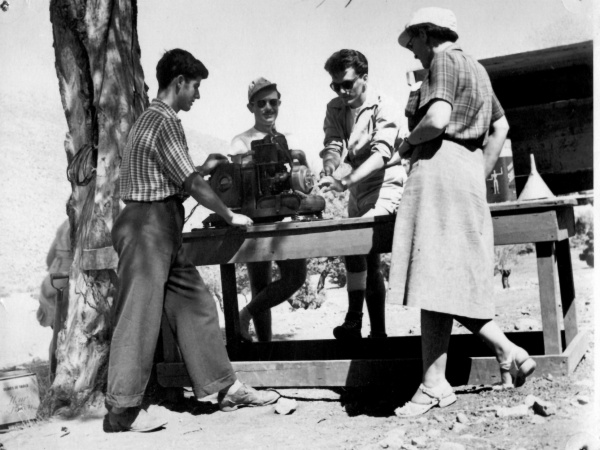August 1949. The Civil War has just ended, completing the destruction caused by the German Occupation, and the country is at a critical turning point, preparing to participate in the postwar world. Father Pyrounakis is ordained as a priest and becomes the ecclesiastical head of the workers’ town of Elefsina.
He believes that a united city society can move forward creatively toward a better future. Father Pyrounakis’s efforts to unify the community and bring about social change mainly clash with the deeply rooted mentality of the older generations. The only solution is the emergence of a new generation with a different mindset and orientations. The experienced and always innovative Father Pyrounakis considers that the institution of the Camps can effectively contribute to the creation of this new generation.
He established the Camps on Mount Pateras, with the vision that all the children of Elefsina, without exception, would go through them. To get to know each other, to connect, and through shared experiences to see society as a whole—a body with a common fate and ideals.
Thus, the Camp was established in a remote area of Mount Pateras. Only a dirt road connected the Camp to the outside world. Experienced leaders, such as Antonis Kallitsis, Soula Douka-Rentoumi, Damianos Stroumboulis, Anna Stroumbouli, and Mimis Pavlopoulos, were called upon to design its programs, create the necessary facilities and infrastructure, and manage the Camp.
Despite the initial indifference of the youth, the city’s mistrust, the miserable slanders against the work, and the incredible difficulties—financial, material, and others—the Camp operated for 13 years (two of which were at Meletaki) with spectacular results. Each year, it hosted 180 boys and an equal number of girls in separate 28-day sessions. More than 2,500 children lived in these camps, and over 250 young men and women helped run them.
Unfortunately, just as the results began to be felt in the society of Elefsina and a new understanding of the structure and reform of society started to take shape—with new social leaders emerging—new reactions from threatened interests, aiming to divide the community, forced Father Pyrounakis to suspend the operation of this successful experiment.


